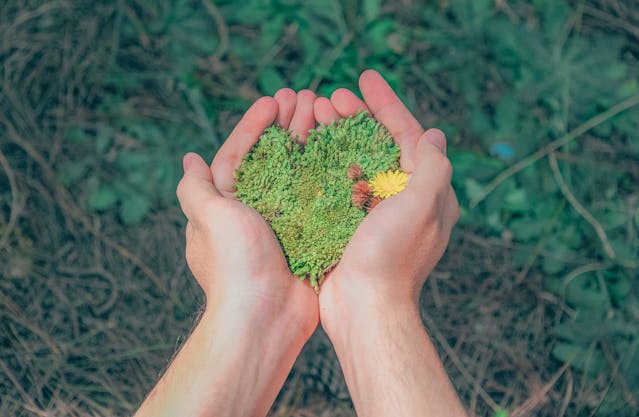Exploring Global Trends Amid Local Challenges in Maui

As a vibrant hub of Hawaiian culture, Maui is known for its breathtaking landscapes and rich traditions. Yet, like many communities worldwide, it faces challenges and opportunities shaped by global trends. One such topic is the increasing influence of technology on everyday life. Here’s a look at how these changes intersect with Maui’s unique cultural identity.
Popularity of Offshore Casinos
Offshore casinos have gained traction globally, especially in regions where gambling is heavily regulated or prohibited. Maui, as part of Hawaii, has strict anti-gambling laws. However, many residents access offshore gambling platforms, drawn by convenience and a variety of games.
These sites operate outside U.S. jurisdiction, offering anonymity, attractive bonuses, and access to international games. For Maui residents, offshore casinos often fill a gap left by the state’s strict stance against all forms of gambling.
The popularity of these platforms raises important concerns. Offshore casinos do not contribute tax revenue to Hawaii, meaning the state misses out on potential funds that could be used for education, infrastructure, or community projects.
Advocates argue that tighter controls or even legalized gambling could provide economic benefits while mitigating social harm. For now, the growing interest in offshore casinos reflects a broader trend of how technology is reshaping entertainment choices worldwide. For example, the best online casinos in the Netherlands 2025 contribute significantly to the country’s economy, with a GGR (gross gaming revenue) of $1.5 billion reported in 2023. Likewise, in the UK, the sector generated almost $6 billion. In both countries, gambling is a significant source of tax for local governments.
Environmental Sustainability in Maui
Maui’s natural beauty is its most valuable asset, drawing millions of visitors annually. However, increased tourism puts immense pressure on local ecosystems. Overcrowded beaches, reef damage, and waste management challenges are ongoing concerns.
For example, coral reefs, vital to marine biodiversity, suffer from overuse, pollution, and climate change. Recognizing this, local initiatives are promoting eco-tourism, with guidelines encouraging visitors to respect natural sites. Restrictions on visitor numbers at sensitive locations, such as Hana’s bamboo forests, aim to prevent over-tourism.
Community-driven efforts also play a significant role in conservation. Local organizations host beach cleanups, tree-planting events, and educational programs about native plants and animals. Residents and visitors alike are encouraged to participate, fostering a shared sense of responsibility for Maui’s environment.
Partnerships between local businesses and environmental groups significantly bolster sustainability efforts in Maui. These collaborations often involve initiatives like beach cleanups, reforestation projects, and the restoration of traditional Hawaiian agricultural practices.
By embracing the cultural value of ‘malama ʻaina’ (caring for the land), Maui demonstrates a commitment to environmental stewardship that serves as an inspiring model for other communities. This approach not only protects the island’s natural beauty but also fosters a sense of community responsibility and cultural pride.
The Intersection of Climate Change and Cultural Resilience
Maui, like many island communities, is on the frontlines of climate change. Rising sea levels, more intense storms, and shifting weather patterns pose significant threats to the island’s ecosystems and way of life. Coastal erosion, for instance, endangers iconic beaches and cultural landmarks, while unpredictable rainfall impacts agriculture, including the cultivation of taro–a crop deeply rooted in Hawaiian tradition.
These challenges demand innovative solutions that blend modern science with traditional knowledge. Community-led initiatives are restoring ancient irrigation systems, known as ʻauwai, to manage water more sustainably, while renewable energy projects aim to reduce the island’s dependence on imported fossil fuels.
Amid these environmental challenges, Maui’s cultural resilience serves as a beacon of hope. The concept of aloha ʻāina–love and respect for the land–guides many local efforts to combat climate change. Educational programs teach younger generations about the importance of environmental stewardship, often incorporating practices passed down through Hawaiian ancestry.
Additionally, cultural festivals and gatherings serve as platforms to share knowledge, unite communities, and inspire action. By grounding climate adaptation strategies in cultural values, Maui not only addresses immediate environmental threats but also ensures that its traditions and identity remain central to its future.
Community Engagement and Cultural Preservation
Maui’s strength lies in its close-knit communities and deep cultural roots. Efforts to preserve Hawaiian traditions are evident in events like the annual Merrie Monarch Festival and hula competitions.
These events showcase the richness of Hawaiian heritage and provide a platform for the younger generation to learn and practice their culture. Beyond events, technology plays a dual role in preservation–it aids in documenting cultural practices and sharing them globally but also risks diluting traditions through commercialization.
Local organizations and community leaders are working tirelessly to strike a balance. Language revitalization programs, for instance, use online platforms to teach ʻolelo Hawaiʻi (Hawaiian language) to students and adults alike.
Workshops on traditional crafts, such as lei-making and canoe carving, combine hands-on learning with digital tutorials, reaching audiences near and far. These initiatives ensure that Hawaiian culture remains vibrant and authentic in a modern context. By fostering active participation from residents and visitors, Maui continues to celebrate its heritage while embracing global connections.
Conclusion
Maui stands at a crossroads where global trends and local identity intersect. From the allure of offshore casinos to the importance of sustainability, education, and cultural preservation, the island faces diverse challenges. By embracing innovation while honoring its roots, Maui can carve a path that respects its heritage and ensures a thriving future for its residents and environment.
